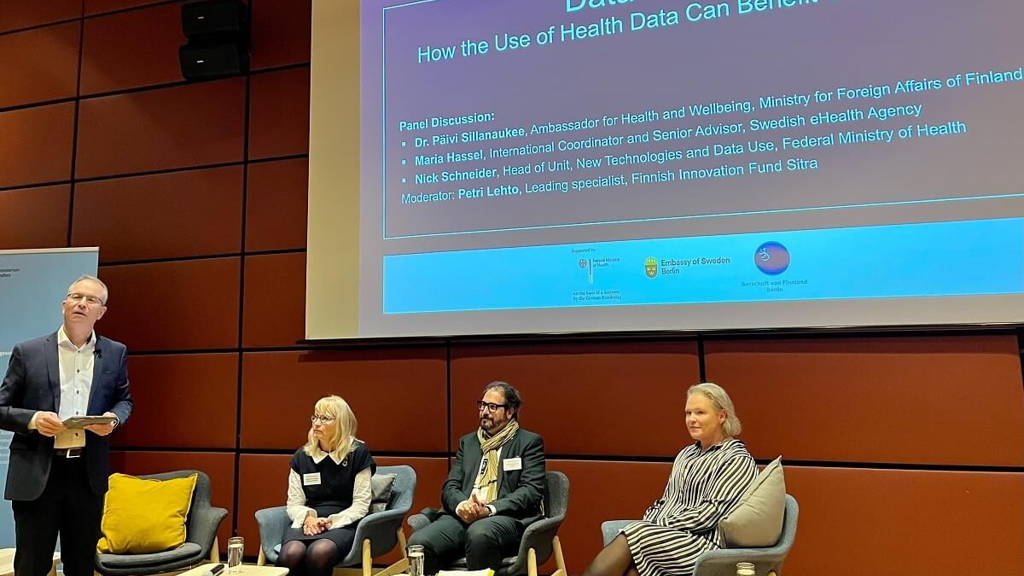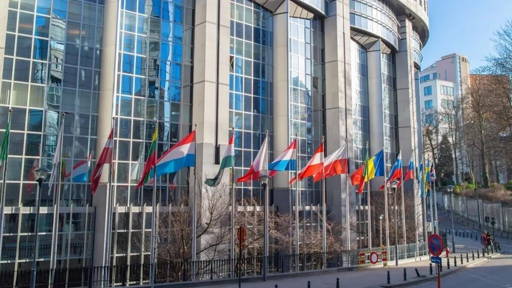The new data economy is coming faster than we expect, and one fact can’t be ignored: European countries – even the biggest ones like Germany and France – have no chance of becoming significant players. So, to create a competitive digital market and catch up with China and the U.S., Europe must move from the old role of a trade union to a data union.
European data spaces – with EHDS as the first and probably most important – is the first attempt of the European Commission to boost innovation in the 27 countries for 447 mln citizens. And it’s the last chance: the benefits from data sharing will grow exponentially in the markets with access to big datasets. In practice, it means that data-driven economic and scientific advances will speed up soon, so those who lag behind will probably lose their position in the future global market.
Since we know that tech has enormous potential to improve healthcare, what is currently a priority to start building the EHDS, which is planned to get a legislative framework in 2025? The most often heard answer is “building trust in data sharing among citizens, improving the national and EU-wide infrastructure and data governance, strengthening cooperation and dialogue between the EU Members States.” Easy said.
Where should this start? Data registries
First, we need clear principles for the secondary use of data, so every stakeholder in every Member State follows the same rules. This is already being developed within the TEHDAS Joint Action led by the SITRA Innovation Fund. TEHDAS aims to support EU member states and the European Commission in building the EHDS by developing common rules for the use of health data. Finland is at the forefront of using data for secondary purposes. Still, a few years ago, it faced a problem that is one of the most significant barriers to data processing: the dispersion of data sources. When an institution – for example, a research center – wanted to access and process data, it was required to send requests to all individual data controllers. It was a time-consuming, bureaucratic and frustrating procedure that discouraged working with data. Following The Finnish Secondary Use Act introduced in 2019, one authority (Findata) authorizes access to data. Another country that has advanced in digitalization in healthcare is Sweden. “We already have over 100 different National Quality Registries for primary use like learning and healthcare improvement, and secondary use, mostly research. These central registries also accelerate the organic growth of smaller registries within local initiatives,” according to Maria Hassel, International Coordinator and Senior Advisor at the Swedish eHealth Agency. Hassel claims that data is one of the most important national assets and should be protected but also used to secure the economic growth, health and well-being of all citizens. Tackling only their protection won’t do any good, so it’s better to focus on “safely harnessing the potential of data.”Societal impact of EHDS
Dr. Päivi Sillanaukee, Ambassador for Health and Wellbeing at the Ministry for Foreign Affairs of Finland, has no doubts that data will be used on a large scale. It’s just a matter of time. Therefore, we have to build a framework for secure data exchange and ensure digital sovereignty as soon as possible. If the benefits are not solid enough motivation to start prioritizing the EHDS, the threats should be convincing. Digital sovereignty means that Europe can develop its own innovations using data from EU citizens, not being dependent on data or AI-based solutions from China or the U.S. Nick Schneider, from the German Federal Ministry of Health, puts it bluntly: Single countries in the EU are too small to thrive in data-driven innovation. So, EU-wide cooperation is the only chance to ensure all 27 EU Member States will benefit from a data-driven economy. “Algorithms for AI-based solutions need data. And we have to make sure that these data originate from Europe. The last thing we want is to be forced to mine data outside Europe, which would mean a new era of data colonialism. So we have to do everything we can to avoid that,” according to Schneider. The EHDS won’t be a one-stop shop. EU Member States have different cultures, infrastructures, laws and health systems. What unites us, however, is our shared democratic values, including approaches to privacy and solidarity in health.EHDS won’t be a one-stop shopBased on the EU pillars, the EHDS can now be implemented in small steps – even before the final proposal is ready. Firstly, we have to make health data interoperable. Secondly, it’s about time to start promoting the EHDS and explaining why it is so crucial. Without citizens and healthcare professionals on board, this historic shift won’t happen. Finally, people should realize that the EHDS is not there to allow data to be sent across Europe – the common narrative now – but to provide secure access to anonymized data in which person A will not be traceable. “We are in the middle of the digital race. We can do research in the EU and develop innovative products and services based on data from Europe. We can train algorithms in Europe. All we need are high-quality data and a robust framework to access it,” concluded Schneider. There are only two years left to shape the EHDS, convince member states and citizens of its benefits, create a positive mind shift to data sharing, and create regional data repositories. In every discussion, one determinant of the successful uptake of EHDS comes up over and over again: trust. When asked how to inspire it, participants of the event “Data For Good: How The Use Of Health Data Can Benefit Our Societies” agreed that we should “start picking the low-hanging fruit of data sharing.” For example, if doctors can access data, they can start making evidence-based decisions, and patients receive better treatment and prevention. And if scientists can use more data for research, we can progress faster in searching for new medicines for cancer or Alzheimer’s. Explaining the benefits in this way is more persuasive than talking about a “single data market” or “data exchange based on EU values.” “If we don’t offer a favorable ecosystem for data processing, innovative companies will go where they are welcome and have better conditions to grow, meaning better access to data,” remarks Dr. Päivi Sillanaukee. The lack of a common approach to data processing is poised to knock Europe to the margins of the data economy.






